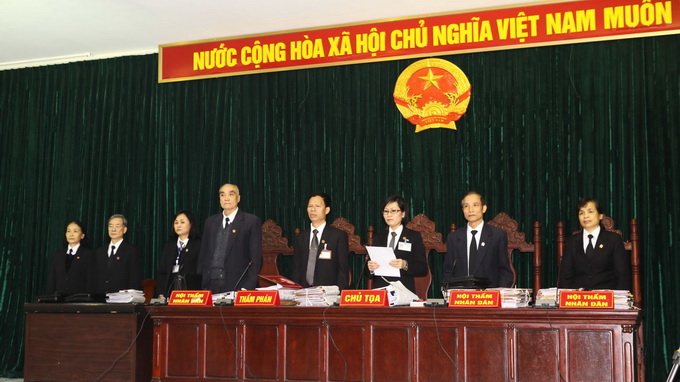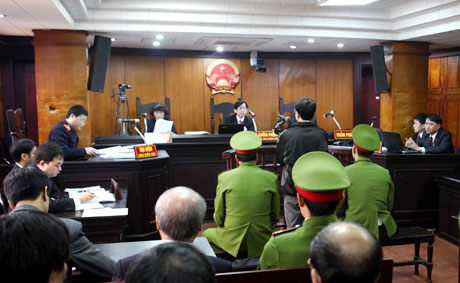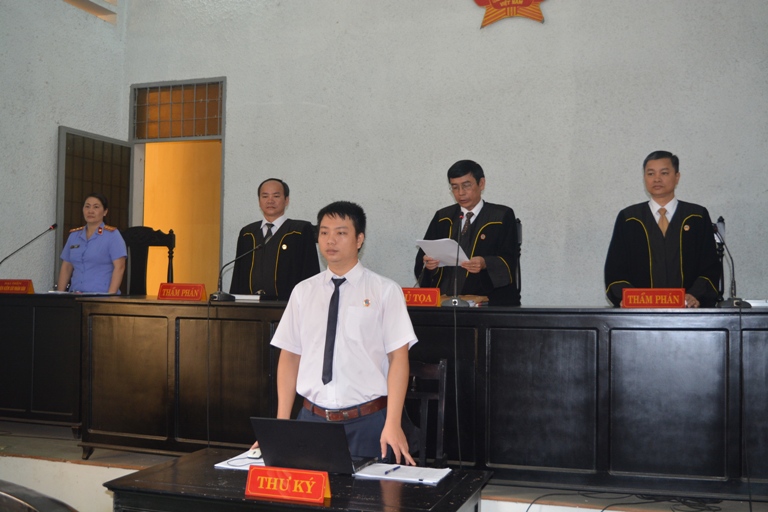People’s Courts of Vietnam: Basic issues
The Law on Organization of People’s Courts 2014 of Vietnam was promulgated on November 24, 2014 and officially effective from June 01, 2015, of which one of the notable contents is the regulation on organization of people’s courts.
Specifically, according to Article 3 of the Law on Organization of People’s Courts 2014 of Vietnam, organization of people’s courts includes:
- The Supreme People’s Court.
- Superior people’s courts.
- Courts of provinces and central-affiliated cities.
- Courts of rural districts, urban districts, towns, provincial cities and the equivalent.
- Military courts.
People’s courts shall be independently organized based on their jurisdiction.

Besides, the law also stipulates a number of powers of the Court when trying criminal cases, including:
- To examine and conclude on the legality of procedural acts and decisions of investigators, procurators and defense counsels in the course of investigation, prosecution and trial; to consider the application, change or cancellation of deterrent measures;
- To cease or suspend cases;
- To examine and conclude on the legality of evidences and documents collected by investigating agencies, investigators, procuracies and procurators; and those provided by lawyers, the accused, defendants and other procedure participants;
- When finding it necessary, to return case files to procuracies for additional investigation; to request procuracies to add documents and evidences, or to examine, verify, collect or add evidences in accordance with the Criminal Procedure Code;
- To request investigators, procurators and other people to present matters related to cases at hearings; to institute criminal cases when detecting omission of crimes;
- To make decisions to exercise other powers in accordance with the Criminal Procedure Code.
Concurrently, according to Vietnam’s regulations, the first-instance and appellate trial system shall be guaranteed:
- First-instance judgments and decisions of courts may be appealed or protested against in accordance with the procedural law.
- First-instance judgments and decisions that are not appealed or protested against within the time limit prescribed by law shall take legal effect.
- Cases in which first-instance judgments or decisions are appealed or protested against shall be brought to appellate trial. Appellate judgments and decisions of courts shall take legal effect.
- In case a violation of law is detected in a legally effective judgment or decision of a court or a new circumstance arises as prescribed by the procedural law, such judgment or decision shall be re-considered according to cassation or reopening procedures.
This is the contents of Articles 2, 5 and 6 of the Law on Organization of People’s Courts 2014 of Vietnam.
- Number of deputy directors of departments in Vietnam in accordance with Decree 45/2025/ND-CP
- Cases ineligible for pardon in Vietnam in 2025
- Decree 50/2025 amending Decree 151/2017 on the management of public assets in Vietnam
- Circular 07/2025 amending Circular 02/2022 on the Law on Environmental Protection in Vietnam
- Adjustment to the organizational structure of the Ministry of Health of Vietnam: Certain agencies are no longer listed in the organizational structure
- Vietnam aims to welcome 22-23 million international tourists in Vietnam in 2025
-
.jpg)
- Vietnam’s judge ranks: Conditions for appointment ...
- 10:00, 20/12/2017
-

- Vietnam: Assurance of operation of People’s Courts
- 10:43, 27/09/2017
-

- Duties, powers and organizational structures of ...
- 09:54, 20/08/2017
-

- Supreme People's Court: Highest judicial body ...
- 09:22, 28/06/2017
-
.jpg)
- Vietnam: Some basic new points about the organizational ...
- 12:06, 11/07/2015
-

- Notable new policies of Vietnam effective as of ...
- 16:26, 11/04/2025
-
.Medium.png)
- Notable documents of Vietnam in the previous week ...
- 16:21, 11/04/2025
-
.Medium.png)
- Notable documents of Vietnam in the previous week ...
- 16:11, 02/04/2025
-
.Medium.png)
- Notable new policies of Vietnam to be effective ...
- 16:04, 02/04/2025
-
.Medium.png)
- Notable new policies of Vietnam effective from ...
- 14:51, 21/03/2025
 Article table of contents
Article table of contents
